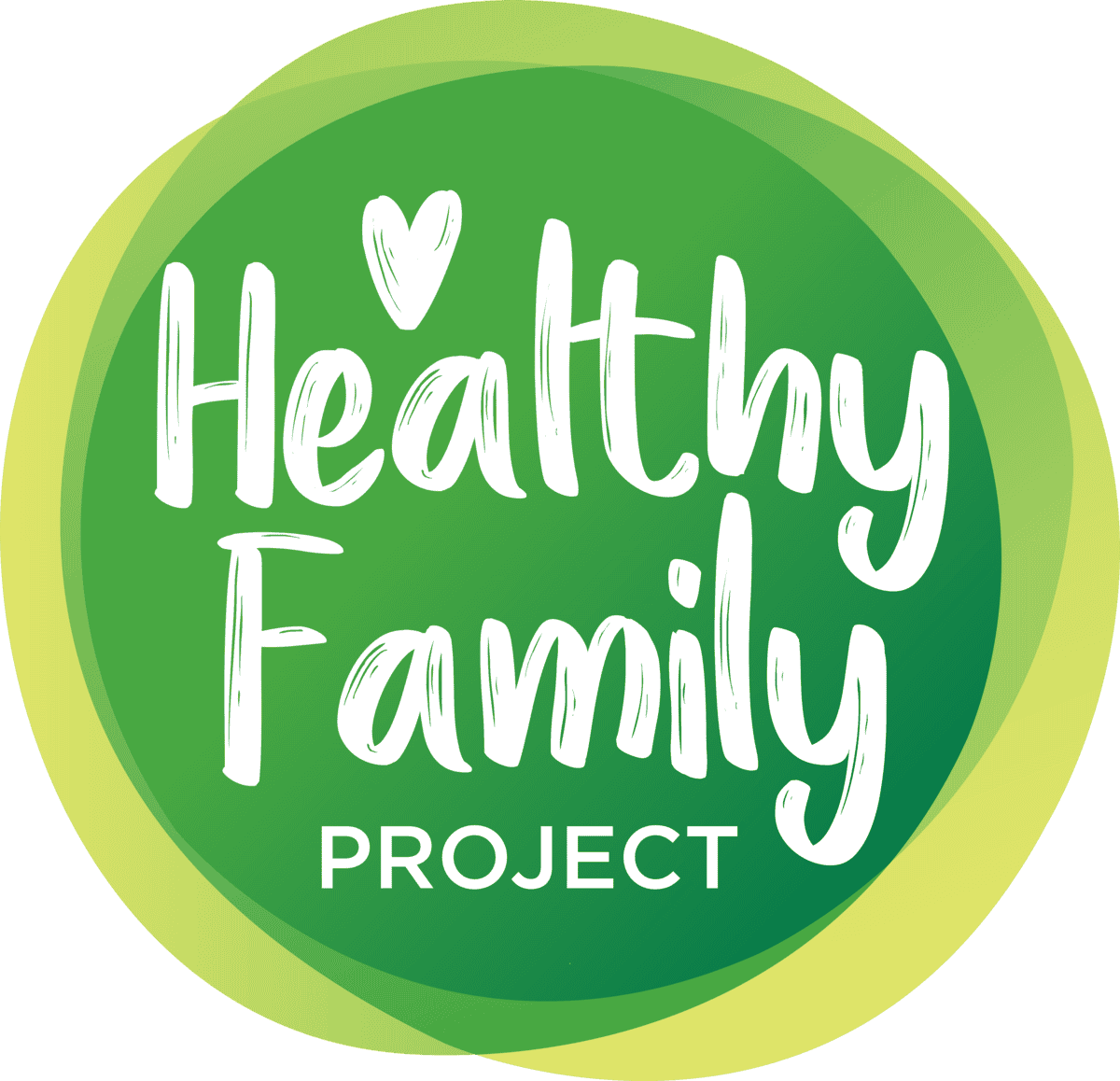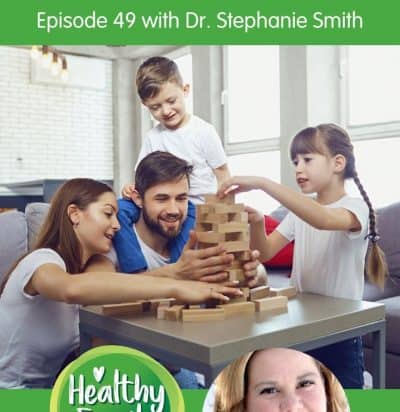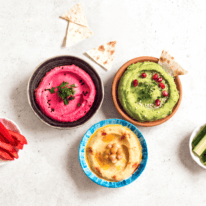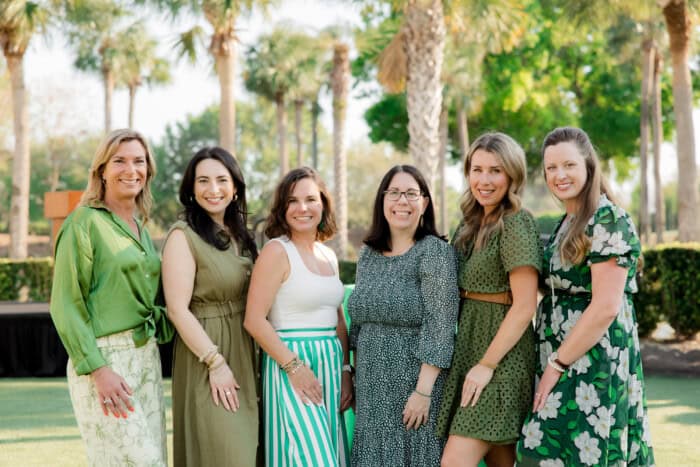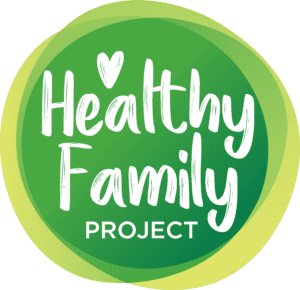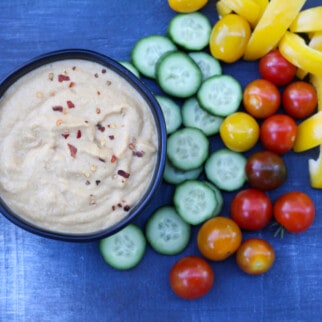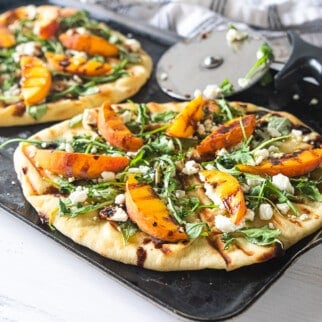Episode 49: Coping with Stress & Anxiety during the Coronavirus Pandemic
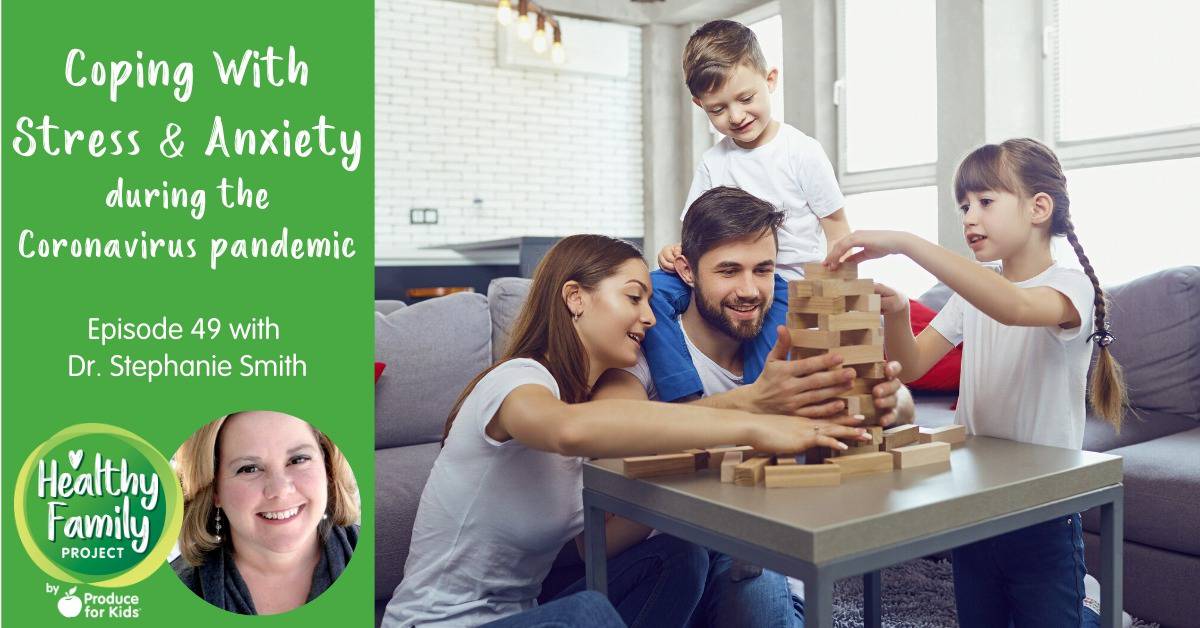
In this episode of Healthy Family Project, we talk to Dr. Stephanie Smith about how to manage anxiety and adjust to life around COVID-19.
Dr. Stephanie shares lots of great tips to help families navigate their new routines, tips to avoid overconsuming news, and ways to address the topic with kids and help them understand what’s going on. She also shares ways to stay connected to loved ones despite isolation.
Dr. Stephanie Smith is a mother, clinical psychologist and author of Dr. Stephanie. In her practice, she works with moms, dads, teens and tweens. Dr. Smith uses humor, compassion and common sense to help people make positive changes in their lives. She especially enjoys working with parents to assist them in strengthening their families from the inside out.
On her blog, she writes about technology, parenting, friendship, and pop culture – all with a mental health twist. In addition, Dr. Smith is an official blogger for the American Psychological Association’s blog, Your Mind, Your Body.
Listener Survey!
Thank you so much for supporting the Healthy Family Project Podcast! We’d love it if you could take 5 minutes to let us know how we can bring you the best possible content for future episodes. Take the survey here.
Want to skip straight to a hot topic? See time stamps below. But of course, we recommend listening all the way through!
- 3:11 How to talk to kids about the pandemic
- 4:14 Tips for media consumption
- 10:18 How can we stay connected to our loved ones through social distancing
- 16:43 How to keep up with routines & figure out new schedules
- 23:14 Adjusting to life at home & setting boundaries
- 28:38 How can families manage stress? How to talk to kids about income loss?
- 32:00 How to stay positive through this situation?
Relevant Links
- Helping Teenagers Cope with COVID-19
- Managing Anxiety & Worry Around COVID-19
- 35 Healthy Pantry Staple Recipes
- Jump Start Dinner with these Conversation Starters
- Kid-Friendly Kitchen Tasks for Every Age
- 12 Fun Indoor Activities for Kids
- Foods to Fight Cold & Flu
Other Podcast Episodes to Check Out:
- Episode 3: Managing Screen Time
- Episode 9: Quick & Easy Dinner Hacks
- Episode 21: Meal Planning & Cooking with Kids
- Episode 40: Meditation Benefits for Kids
- Episode 24: Making Exercise a Family Affair
Healthy Family Project Podcast
Conversations covering hot topics in the world of health, food and family with a dose of fun. Helping families ease their way into a new fresh and healthy world.
Be on the lookout for new bi-weekly episodes and don’t forget to subscribe on Apple Podcasts, Google Podcasts, Spotify or your favorite podcasting site. If you like an episode, make sure to leave a rating and comment.
If you are interested in being a guest on the Healthy Family Project podcast, contact amanda@healthyfamilyproject.com with your topic idea for consideration.
Healthy Recipes & Tips in Your Inbox
Sign up for the Healthy Family Project e-newsletter to receive healthy recipe inspiration, our latest blog posts and more directly to your inbox each week.
Healthy Family Project Facebook Group
Join our Healthy Family Project Facebook group! This group will serve as a safe space for parents and caregivers to talk all about raising a healthy family – from dealing with a picky eater and tips to get more fruits and veggies onto plates to exercising as a family and mental health. We welcome all of you to join in!
Transcript for Episode 49
This transcript was produced by Otter.Ai. Please forgive any misspellings and grammatical errors.
00:09
Welcome to the healthy family project by produce for kids, covering the hot topics in the world of health,
food and family with a dose of fun. Hey friends welcome back. I’m your host Amanda and today we’re
welcoming Dr. Stephanie Smith, who we’ve had on the show several times. She’s a clinical psychologist,
mom and author of Dr. Stephanie smith.com. She is here today to talk about managing stress and
anxiety with your family. Around the COVID 19 pandemic the Coronavirus, currently consuming the
news, you know that tensions are high. Kids are out of school understandably anxious about what it all
means. So we’re going to chat today to kind of hopefully help give you some tools to be able to relax a
little bit be able to navigate this social distancing that we are all undergoing. And just hopefully leave
once you listen, leave your leave a little more peaceful than when you You joined in today. Also,
remember, we have our healthy family Project Facebook group, we are keeping the conversation going
over there. And be sure to follow produce for kids on Instagram, where we are sharing tips on how to
keep your family’s immune system strong, and ideas for of course ideas for easy recipes, a lot of those
with pantry staples, so you don’t have to make extra trips to the grocery store. So be sure to find us over
there. We also have some great in the kitchen videos on YouTube. Some of those with my girls who are
in the kitchen, making some easy recipes. You know, getting in the kitchen is just a great way to be
together as a family and also learn learn a lot math, science, all of it. It all comes together in the kitchen
in a way that you don’t even know it. So make that kitchen your classroom during this time. Well it looks
like we have a lot to cover today. So let’s jump in. Hi, Dr. Stephanie. Welcome back to the healthy family
project podcast. We’re so thankful to have you on today to offer tips for families. In light of the recent
COVID-19 Coronavirus pandemic, that we’re all kind of navigating right now. I know the news cycle is
never ending, and definitely not to discredit, you know, communication that’s being shared. But it’s just
you know, it’s really hard. All of these events taking place. We have this 24 hour news cycle playing into
all the stress and anxiety around this virus. So I guess first off, we’ll start there, what can parents do to
help children understand what they are hearing? I know, we don’t have to have them sitting in front of the
TV all day long. But how do we it’s kind of hard to avoid and really, as adults, what is your what are your
thoughts on how much news we should be watching to stay informed?
03:13
Well, those are both really good questions. So I guess I’ll tackle the first one first. How do we talk with
our kids? I think a really good first start is sitting down and just asking them, What do you know?
03:29
What are you hearing? What’s in your head about this COVID-19 It might surprise you actually, I’ve
talked with a couple of my kids about it. And
03:42
some couple of them know more, and one of them knows less and but I think it’s a good place to just
kind of know what you’re dealing with. And then you can go from there. And it fill in the gaps. You know,
you don’t know if they’re hearing things that aren’t true, of course, you want to make sure they’re getting
accurate information that’s developmentally appropriate. And yeah, so I think filling in any gaps that they
have is a good first start. In terms of how much news? Honestly, I think we all need to drastically cut our
news consumption. And not to say we we need to stick our head in the sand and not be aware. But right.
You can get a surprising amount of news in five to 10 minutes once a day. Yep. And that’s probably
enough. I think we also need to consider how much time we’re just spending, talking about COVID-19 as
well. So maybe you’re not watching the news, but you’re talking about it in every conversation you have.
04:54
It’s going to have the same effect. It’s going to drive up anxiety and spread rumors and Just to get us all
worked up in ways that
05:05
are kind of unnecessary. This is a super stressful time for sure. But I think it becomes then even more
important that we try to minimize or eliminate any unnecessary stress. I think we can do that by
drastically reducing our news intake and managing how much of our conversations surround the virus.
05:29
Those are, those are some good tips I myself have implemented personally, just for me. And feel free
anyone who wants to steal this? I do. I’ve been doing 15 minutes in the morning of news and 15 minutes
in the evening, trying not to have that too close to bedtime, though, because that makes it a little hard to
sleep. That’s a good idea. Yeah. So I have and I had Leslie who’s on our team at parties for kids said she
even on her news app has enforced like a screen time, you know, in the Apple settings, you can set a
screen time limit, she said, I have to I had to set a screen time limit for myself. So it shuts down. You
know, after so long, or at least is like a reminder, like, hey, you’ve been scrolling for 15 minutes time to
take a break. And so, but I did tell my husband that I did implement that 15 minutes. And I said, but if
there is something that I need to know, can you tell me like just up my like news alert? I’m gonna let you
do that. So he’s he said, Yeah, I’ll stay on top of the headlines. And if there’s something you really need
to know, in between your designated times, then I will let you know. But it’s been I feel like I have once I
started doing this, just you know, late last week, I guess I have felt a lot better. And I don’t think I’m
missing anything. You know, I’m not, I’m still informed. I’m still doing what I need to do for my family. It’s
just helped my brain and my heart.
07:02
Yeah, because I think it’s important to remember that the news sites, media outlets, social media sites,
they want us to spend a lot of time on there. That’s how they earn their living. And that that’s fine. But I
think it’s important, we keep in mind that they have a reason for making really catchy headlines and
things we all want to click on. But that that doesn’t mean that, like you said, we can’t stay up to date with
just short periods of looking at the news. Right? It’s, uh, yeah, it’s tricky in that way. But I think that’s a
good point. You said you still feel up to date?
07:50
I do. I do. And then I know, we talked. And coming up on the blog, we’re gonna have a dedicated blog
post about talking to teens, and kind of working through that, which is a whole other ball of wax, because
we both have teenagers. But I did have to tell my teenager because like you said, dispelling rumors. I
mean, the kids are texting, this is canceled, that’s canceled, we’re not going to do that. Like, this test isn’t
happy, you know what I mean? So and so I know, we’re going to have a whole blog post about it. But I
had to talk with her. And I think it’s just hard because there’s so much information out there, and you’re
hearing so many things from so many different people. And so, not letting yourself get caught up and
really looking at the facts. And sometimes the facts are hard to find. But, you know, for kids and
teenagers, especially going to your parents and saying, Alright, like I need to know, this is bothering me,
like I need to know what, really the status is of this, you know?
08:53
Right, right. And I think you make a good point. Kind of back to the first question, how do we talk to our
kids? Probably the most important thing we can do is to just say, Come to me, come to me, if you have
questions, we’ll figure it out. Together. And you know, just having that open line of communication, I think
is really important.
09:19
Definitely. Okay, so we fear this pandemic will probably get worse before it gets better right at the circle
of this virus. So besides schools closing and events being canceled, we’re also seeing restaurants and
stores closing or cutting hours. We’re all learning and figuring out this social distancing thing. Many
people are finding it difficult to stay home and are missing that social interaction interaction. So what are
your thoughts? How can extroverts Who are you know, those who enjoy being around others deal with
social distancing? I know, for me, I’ve been okay. I’m alright with the social distance. For now, I’m sure I’ll
hit a point. But I know the girls have struggled a bit with with not going anywhere because we are a busy
family. So what are your tips on helping pass the time and for those extroverts who are really dealing with
a blow with, you know, being stuck inside?
10:18
Well, one of the things that I have discovered over the past week and a half to two weeks here in
Colorado, is the the real difference between talking to someone on the phone where we just hear our
voices, like you and I are right now, versus doing something where there’s a video chat, so I can see
their face in their eyeballs and their facial expressions. If it makes a difference, we’re maybe still not
together in the same room. But I definitely feel that a different sense of connection, when I can see a
friend or a patient or a family members face. So I think that’s important to experiment with, on on our
own, like, maybe get outside of our comfort zone and FaceTime, or Skype, or zoom, or whatever
platform you’re using. Rather than just calling or texting. I think that can be a really good solution in the
short term. You know, I think I am not a infectious disease expert, obviously. But one of the things I’m
understanding is that going outside is still okay, we still want to maintain that six foot distance. But it’s
perfectly reasonable and easy to have a conversation with someone at six feet away, or even 10 feet
away. So to the extent that you can, can get out, get out in your neighborhood, in your community on a
trail and and see life, people talk to life, people from a safe distance. I think that can go a long way to
Yeah,
12:06
I agree. My daughter, my nine year old actually today, which I was so glad one of she has a tight knit
group of girlfriends. And they’re, they’re an interesting bunch. They’re They’re very, they have very
intelligent conversations for their nine year old brains. But one of their moms set up a Google hangout for
lunch. And she sent out an invite. So the five of them today, from noon to one, they all ate their lunch, like
they, you know, would it school. And they were all on the Google hangout together. And it was just so
wonderful. You know, I’m working at my desk and listening to this conversation. And they’re telling each
other things and doing quizzes on each other. And it was just so nice, the excitement for all of them to
see each other. I was just so grateful that she set that up. And now we’re going to try to do that regularly,
as we move into the distance learning so that the girls, you know, can kind of if there’s something they
can work together on or all of that, but I think it made a difference in our FaceTime time to a couple
friends over the past couple of days to who I normally wouldn’t, you know, I’d send a text or call or maybe
see them, but it was just really nice, even just for a couple minutes just to say, Hey, how are you? And
are you know, yesterday, I had a cocktail and my girlfriend from high school texted me and said, I’m
FaceTiming you grab a cocktail all the time, that happy hour and said, All right, let’s do it. I mean, it was
15 minutes, we cheers and laughed. And that was it. And I felt so much better.
13:46
It’s pretty amazing how how we’re all getting creative and connecting with one another. And I think that
will just increase. You know, I’m noticing every day, I’m getting more and more email opportunities for
either my kids or I to connect with the soccer team or with the school choir or with the church group or
with the, you know, band or whatever. You know, people are figuring out the technology. They’re figuring
out that we need to connect. And so I think it’s going to be important for all of us to to accept these
requests when they come come through that yes, for happy hour Yes, for the band practice where we’re
all in our own rooms. But zooming in or doing Google hangout together is kind of weird, but I think it’s
worth worth trying.
14:45
I do too and honestly a positive here. If you look around so many organizations, prestigious
organizations are offering free online classes or free sessions to tune in and Listen to this, you know,
expert choir person, give a seminar. There’s just so much out there right now that I feel like a lot of
companies have definitely stepped up and are offering a lot of free dance classes and yoga, and I think I
even heard some of the language apps are offering two months free, you know, learn a new language
while you’re while you’re quarantining. So
15:28
yeah, we I try new things is great. You know, I don’t think we need to feel bad about ourselves if we’re not
fluent in German. Yeah, right. But certainly, good time to try stuff we’ve always wanted to without having
to actually put on a leotard and go to a dance class or something.
15:48
Right, exactly. No, I like it. I’ve been excited to see some of the things out there. And we’ve done a
couple of them a couple of mic. Okay, you’re getting a little too ambitious. You can’t do like 10 dance
classes in a day. Anyway, okay, so I know, I’m one of parents whose kids are home from school, I think
that is probably across across the board for for many of us. So my girls thought, you know, well, it kind of
is we don’t go to our distance learning till March 30. So we were on spring break last week. And then this
is kind of this week, they’re calling it an extended spring break. But we’re still I’m still trying to get them in
the zone this week, especially for this distance learning and in a routine. So how important is it that we
maintain a routine? And what’s the right ratio of schoolwork to downtime? You know, I don’t? It’s just so
new for all of us. What are your thoughts?
16:45
Um, I think that’s a really good question. And I guess we have not started our online learning yet either.
Though, I know other parts of the country have. What I’m hoping is that there will be parts of that online
learning that will need to be done at a certain time. So everyone in algebra one logs in at 9am, or
whatever. I mean, I just don’t, we don’t know how that’s gonna look yet. But my understanding is it’s
going to be the workload is going to be significant. I mean, it’s there, it’s going to be real school, with real
lessons and real assignments. And I think that’s going to be really good for everybody. Because I think
we’ll have to block out, you know, good chunks of time, maybe two hours in the morning, two hours an
afternoon or four hours all at once, or however we do it. I think that structure after not having structure for
a couple weeks or more is going to be welcomed by most even kiddos. And I think the other piece of it is
we’re all just going to have to be flexible, we might have to try three, four, or five, six different ways of
making this online school stuff work before we find what actually does work. So keeping that in mind,
most of us are not professional teachers. And that’s okay, we’re going to screw up, our kids are going to
be crazy or not engaged, or whatever they’re going to do, but just continue to be flexible and keep trying.
And I think we’ll settle on something that works.
18:38
And I like that, that’s a great way to look at it because and I do think schedules are important. But I have
seen you know, so many schedules flying around on especially on Instagram parents sharing, you know,
what their schedule is for distance or for learning and I think as a parent, maybe you can become
overwhelmed, wondering like, wow, I need I don’t have that, you know, I don’t have this, like, all figured
out and so, just us, I think talking about it, knowing that no, and they probably don’t have it all figured out
either not scheduled probably doesn’t stay on task, right to that hour every day, either. You know, you
have to give yourself grace and you have to be able to accept the things and it’s life like things happen
the way they’re gonna happen. Like you’re you’re out of that control zone.
19:32
Yeah, that’s right. And I think every family’s in a different in a different boat, you know, if want, there’s one
parent they’re trying to work or two parents are trying to work or grandma’s trying to fill in and doesn’t
understand the technology or no parents there and the kids have to do it on their own. I mean, it’s I just
don’t think it’s fair to to anyone to have super high expectations. We’re all just muddling through and You
know, we’ll get to the end of it, when this will end. And we will get to the other side. And if we did it
perfect or not, it just doesn’t matter.
20:12
Well, and, and I know this is a tough pill to swallow to say this, and, like maybe very philosophical on my
part, but all things in my life that were really hard to figure out and kind of painful. There was good that
came from those things. And I those are the things that I learned the most from. So silver lining, I guess,
as we’re having this conversation, and we’re being forced into making, you know, evolving and learning
new things and figuring out well, how are we going to do this problem solving? You know, I guess at the,
at the end, we’ll be able to look back and, and really have learned a lot of things from all of this.
20:54
I think you’re right, I think we’ll have learned a lot of things, probably most of which we have no idea.
Yeah. You know, what we all know for sure, is how grateful we will be for the things we didn’t even think
about before. Being able to go to the park or to a coffee shop and not even spend a second thinking
about who else was there or where we could sit when there’s just a million things that at least for a few
days when this is over we will be grateful for not take for granted.
21:32
Yes. I know I will be many Yang’s list is long. Okay, so many parents are now working from home. I’m
used to spending about half my week give or take, you know, I’m at the office I’m at home. It’s, it’s can
definitely be a huge adjustment for many adults who spent full days at the office. What are some ways
we can stay focused on our work? While kids are home? Miss? Yes, this is a trick question. Laundry
needs to get done and dinner needs to be made? How can we I guess set boundaries workspaces,
responsibilities with our partners dun dun, da to balance? Because that’s a podcast for a different time.
How we’re all gonna make it through our relationships during this, but how do we balance things out?
You know, I kind of I set up a rule last week, you use a dish, you wash a dish, I don’t want any dishes in
the sink. And so it’s actually been working out well, and I’ve really been policing it too. But I have been
really excited. And I know, that’s like a small step. But I felt like wow, you know what, I’m not doing a sink
full of dishes. And that could be a really big sink full of dishes with all of us home. And so that was like
my little first thing where I thought, how can I do this. And this is going to make a difference in my state of
mind as a parent, and everyone luckily, has been on board, probably because they don’t want to see me
go off the deep end. But what are your thoughts on setting those boundaries?
23:14
I think the first thing is, notice what is going to be the most important thing to you. So you know what,
what we want to avoid is coming to our families and giving them a list of 35 things that they have to do
and that you’re going to do and nobody’s going to listen to that. It’s just going to get lost in the noise and
be really annoying. So I think like for you, that’s a great example, you were able to pinpoint, okay, the
dishes are gonna drive me crazy. I’m gonna come up with a solution and kind of go from there. And it’s
working. I’ve talked to some other folks who say, you know, what, is really hard for me. I am not getting
any alone time. And I’m finding that I’m getting really, really irritable because I’m with people all the time
now. Like, okay, let’s come up with a solution for that. What if he took a drive for 45 minutes after lunch
every day? Just you? I mean, that’s not against protocol, even if you’re just going around in circles in
your neighborhood. But it’s a lone time. How can we carve that out? Yeah, if it’s, gosh, I need
uninterrupted space to make these work phone calls. Okay, let’s focus on that. Forget the other stuff until
we can find you a good private space to do your work. So it’s going to be different for everybody. But I do
think it’s important that we like one thing at a time. One thing at a time and that that’s hard when we’re
feeling really stressed out. But I think that’s the only way that we can get good buy in and and make
some positive change. Not doesn’t mean you can only ever complain about one thing, or around one
thing, but just one thing at a time. And then maybe after a few days, we can tackle something else.
25:12
I like it. Yes, I felt like that was my one thing that I knew that those dishes were going to pile up, I just
know with everybody here, and I thought, You know what that is going to be one thing that I can kind of
not have to deal with at the end of the day, and it seems minor. But for me, you know, and my, like I said,
I work from home here and there. So the girls are in and out. So it hasn’t been a huge change for me.
But they’re really respectful when I say, I am going, you know, and they’re a little older nine and, and 13.
So it’s like when I have this is an important work, call it make it very clear, or, you know, I’m going to
record this podcast right now. You cannot interrupt unless you know something’s on fire. So I think really,
and for them to, you know, for them to do the same thing and see, like, that’s okay to say, you know, my
teenager, like, I can see she’s, you know, that’s hard. That’s a hard age, I did not want to be quarantined
with my family at age 13. That sounds like, you know, yeah, really bad. Yeah. So I, I need to know,
understand that. And when she says, I need to be alone, like, I need you to stop asking me questions
about the laundry, and whatever else, and I need to just be alone, I need to respect that because I expect
them to respect my space, too. So
26:37
I think that’s such a good point. I really do. And making sure it goes both ways, with us and our kids and
our partners. And then also understanding that every family is in a really different situation. I mean,
people with babies and toddlers, you know, are gonna have different struggles than people with
teenagers than people who live alone and are dealing with extreme isolation and loneliness. So you said
Grace earlier, and that’s like, one of my go to words is just having grace for ourselves grace for others,
who are struggling with different things. And again, just just trying to do the best we can.
27:25
Yeah, I think that’s the key there, we’re all doing the best we can and that we have to be at peace with
that, knowing that we’re doing what we can. So alright, so another major problem with this pandemic,
let’s just keep adding to the list. And all the closings and cancellations is that parents either have to work
and don’t have childcare. Or, you know, many people aren’t able to bring home a paycheck, we have a
small business in our family that is facing some serious, you know, the future is kind of uncertain. And
we’re just straight here in the beginning of this, it’s not, you know, an easy thing like oh, just go work for
Go work from home, it’ll be fine. You know, there’s service industry professionals, so many different fields
that when you know, entertainment musicians, that you’re not working and you don’t get a paycheck. So,
you know, that’s just an extra ball of wax. But how can families manage the stress this brings? And for
those dealing with income loss? You know, how do you talk to your kids? Do you talk to your kids about
what’s going on?
28:38
Oh, that’s a really tough one. Um, I think it obviously depends on on the age of the kiddo. But at the end
of the day, you probably can’t very easily escape having some of those conversations. If for no other
reason, then kids of any age, even very young kids are going to pick up on the fact that their parent or
caregiver is really stressed out, or, you know, depressed or sad. And I think that’s what becomes really
stressful for them is watching their parent or caregiver get really upset. Right. And so we want to make
sure that we’re that we’re addressing that in a way that is honest, but again, age appropriate, like yes,
this is a hard time. These are some things that I’m worried about, and this is why maybe has been kind of
irritable or sad. You know, obviously, you have to kind of play with those words depending on age, but I
think again, it’s it’s seeing the parent or caregivers stress, anxiety, depression side witness that’s
upsetting to them. And so in that way, I do think it is important to address but dress it, because they know
what’s going on whether you think they do or not.
30:12
And I do, I agree with you. And I know, maybe you don’t have to give every detail and the potential
impact and make a graph or whatever was. But I do think that in the times, even my younger daughter,
and granted, like you said, you kind of tailor your words based on the age. But when I’ve talked to my
girls, if I have something going on, when I’ve, they have been so supportive, and it like clicks for them,
and even my older daughters, like, Oh, I understand why you, you know, have been upset like that.
They’ve just it’s been. And so we just, I think maybe only remember that there are ways to talk about
things with kids at any age to help them better understand because it’s better that they recognize that
there is a reason, you know, and and they’re able to be there for you and be supportive. And, you know,
31:11
well, yeah, I totally agree. And then, you know, the the kind of side benefit to that is that it, it is showing
them that this is what families do, when we’re having a hard time we share it with each other. And so that
then they will be hopefully more apt to share their struggles with us down the road.
31:37
Right, exactly. No, that’s, that’s great. So okay, so we’re gonna, we’re gonna round this out now, but let’s
end on a positive note. And honestly, when I was writing this last question, I really didn’t know what
question to ask. How do we end on a positive note? What what simple tips do you have to help us keep
positive?
31:59
Okay, so, here is my positive note. In my life, I have been a voracious consumer of comedy in the last
two weeks, silly comedy, meaningless comedy like Jim Carrey, Ace Ventura kind of comedy. Yes. And
that is so wonderful. It doesn’t mean that what’s going on in the world is any less sad and stressful, but
it’s an important strategy for managing through our lives. And it’s probably a strategy that I don’t use
enough. But it’s been kind of fun to seek out comedy, whether it’s through podcasts, or kind of art, visual,
comedy, movies, TV, it’s everywhere. And much of it is is free or very low cost. So that’s been something
positive in my life. I feel like I’ve been been trying to diligence leap in be laughing more and consuming
more comedy, which is, I think goes positive.
33:19
You’re right. And that’s simple. And like you said, there’s so much of it out there. Whether it be an old
movie that you forgot about, like Ace Ventura, or you know, going down that path or just something even
last night we watched. We were laughing because when Mia my older daughter was little she liked this
movie called Elmo and grouch land. It’s pretty. It’s it’s I think it came out in like, 99 She was born in 2006.
But she was obsessed with this movie. And so we were laughing We for the past week, I don’t know why
keeps coming up. So last night. She said let’s watch it. Let’s watch it and see, you know, and we just we
laughed so hard all of us at this movie and we sat through the whole thing an hour and 30 minutes of
Sesame Street characters and Elmo and grouch land and we were saying like this is why you liked it like
you know at different parts and trying to like show who she’s become and yes, this is why you liked it
because it was foreshadowing of of you know, your Broadway love and so it was fun to kind of go back
and, and in Amina was funny too. And so. So it let us have some laughs as a family and, and it was
good. So I am definitely with you on the comedy.
34:41
Yeah, I think that’s pretty, pretty doable and easy to access for just about everybody.
34:47
Yeah, for sure. I Yeah, the internet, youtube. All of these platforms make it easy for us to if we want the
comedy we can get to it. So. Well. Thank you so much for joining us today. These have been amazing
tips and ideas for families, we’re going to link up to different resources in the show notes. And also, like I
mentioned, we were kind of talking about, you know, how different it is to talk to teens and kind of work
through all of this with your teenagers who might be missing out on on different things, or milestones, or,
you know, prom or things that are a big deal. So we’re gonna have a blog post going up about that. And
so you can definitely check that out. But before we close things out, Dr. Stephanie, can you tell listeners
where they can find and connect with you?
35:40
They can look at me and my stuff on my blog, which is just Dr. Stephanie smith.com.
35:47
Awesome. And we have lots of content from Dr. Stephanie, also over at produce for kids.com, as well, so
you can find some of her things there. And we’ll be sure to, again, link up to everything in the show
notes. So stay safe, everyone. Stay safe. Dr. Stephanie, and hopefully we’re through this before you
know it.
36:06
Thank you so much for having me. I really appreciate it.
36:09
I always have a lot of fun. When Dr. Stephanie joins us on the show. I truly hope you’re all feeling a little
more peaceful, maybe a little more Zen hopefully, at ease navigating these new waters that have come
our way pretty quickly. We will get through this. Keep telling yourself write it, write it on your vision board
or your post it note or wherever you you need to write that we will get through this. And as truly as hard
as it can be to forge ahead. I know it’s not always going to be easy. It will be worth it. Keep your head up,
and we’ll be stronger for it too. Please join us in the Facebook group. We would love to have you there.
There is some comedy going on over there. I just had to make a post after we chatted about keeping that
comedy in our world. So head over there. Join us have some laughs get some ideas. And if you like the
healthy family project, please tell a friend and leave us a rating it will only help our visibility so we can
continue to create a healthier generation. If you want to tweet with me direct. I’m at Amanda M Kiefer on
Twitter, and also Amanda M Kiefer on Instagram. And you can find produce for kids on Facebook,
Twitter, Instagram, Pinterest and YouTube. Be sure to subscribe Talk soon
